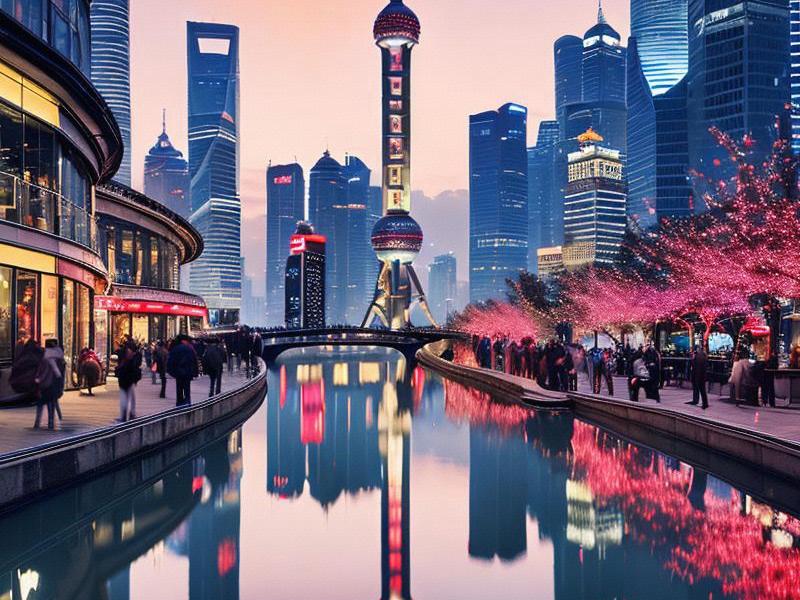
Shanghai, the bustling metropolis on the banks of the Huangpu River, has long been a symbol of China's rapid urbanization and economic transformation. However, beyond its skyline of towering skyscrapers and its status as a global financial center, Shanghai is also a cultural powerhouse, particularly when it comes to its entertainment scene. Over the years, the city has successfully woven together its deep-rooted traditions with the latest trends in modern art and entertainment, creating a unique and dynamic cultural tapestry.
The entertainment industry in Shanghai is multifaceted, encompassing everything from traditional Chinese opera and acrobatics to avant-garde theater, international film festivals, and electronic music festivals. This blend of old and new, tradition and modernity, is what makes Shanghai's entertainment scene so captivating and distinctive.
One of the most iconic symbols of Shanghai's entertainment heritage is the Yu Garden Opera House, located in the heart of the city's historic Yu Garden. This elegant venue, with its intricate architecture and serene surroundings, has been a staple of Shanghai's cultural life for over a century. Here, audiences can witness the timeless beauty of traditional Chinese opera, a genre that combines singing, acting, and acrobatics to tell stories of love, betrayal, and heroism.
In recent years, however, the Yu Garden Opera House has undergone a remarkable transformation. It has embraced modern technology and innovative staging techniques to keep the art form relevant and appealing to younger audiences. For instance, some performances now incorporate digital projections and multimedia elements, creating a more immersive and interactive experience for viewers.
上海龙凤419杨浦 Another testament to Shanghai's ability to blend tradition with modernity is the city's vibrant contemporary art scene. The Shanghai Museum of Contemporary Art, located in the Pudong district, is a leading institution in this field. It showcases works by both Chinese and international artists, exploring themes such as identity, globalization, and the impact of technology on society.
The museum's exhibitions are always thought-provoking and often controversial, sparking debates and discussions among art enthusiasts and critics alike. They also attract a diverse audience, from art connoisseurs to casual visitors, who come to experience the cutting-edge art scene in Shanghai.
In addition to its museums and theaters, Shanghai is also home to numerous music venues and festivals that cater to a wide range of tastes. The city's electronic music scene, in particular, has gained international recognition in recent years. Events like the Shanghai International Music Festival and the Tomorrowland China festival draw thousands of fans from around the world, who come to dance the night away to the beats of top DJs and electronic music producers.
上海夜网论坛 These festivals not only showcase the latest trends in electronic music but also provide a platform for local talent to shine. Many young Chinese DJs and producers have gained international acclaim through their performances at these events, further cementing Shanghai's reputation as a global hub for electronic music.
Theater in Shanghai is another area where tradition and modernity coexist harmoniously. The city is home to several renowned theaters, such as the Shanghai Grand Theatre and the Aksra Theatre, which stage a wide range of productions, from classical ballet and opera to experimental theater and musicals.
One of the most exciting developments in Shanghai's theater scene is the rise of immersive theater, which uses technology and innovative storytelling techniques to crteeaa fully engaging and interactive experience for audiences. For example, the "Sleep No More" production, based on Shakespeare's "Macbeth," takes viewers on a journey through a haunted hotel, where they can interact with the characters and influence the outcome of the story.
上海娱乐联盟 This blend of tradition and modernity is not just limited to the arts and entertainment sector; it is also reflected in the city's overall urban development. Shanghai has invested heavily in preserving its historical and cultural heritage while also embracing modernity and innovation. The Bund, a historic waterfront area, is a prime example of this. Once a symbol of Shanghai's colonial past, the Bund has been transformed into a vibrant cultural and entertainment district, with modern skyscrapers, luxury hotels, and trendy restaurants.
The city's commitment to preserving its cultural heritage is also evident in the numerous cultural festivals and events that take place throughout the year. The Shanghai International Film Festival, for instance, is one of the most prestigious film festivals in Asia, attracting filmmakers and stars from around the world. It provides a platform for emerging talent to showcase their work and for audiences to experience the latest trends in cinema.
In conclusion, Shanghai's entertainment scene is a testament to the city's ability to blend tradition with modernity. From traditional Chinese opera and contemporary art to electronic music festivals and immersive theater, Shanghai offers a diverse and dynamic cultural experience that appeals to a wide range of tastes. As the city continues to grow and evolve, its entertainment scene will undoubtedly remain a vital part of its cultural identity and a source of inspiration for generations to come.
